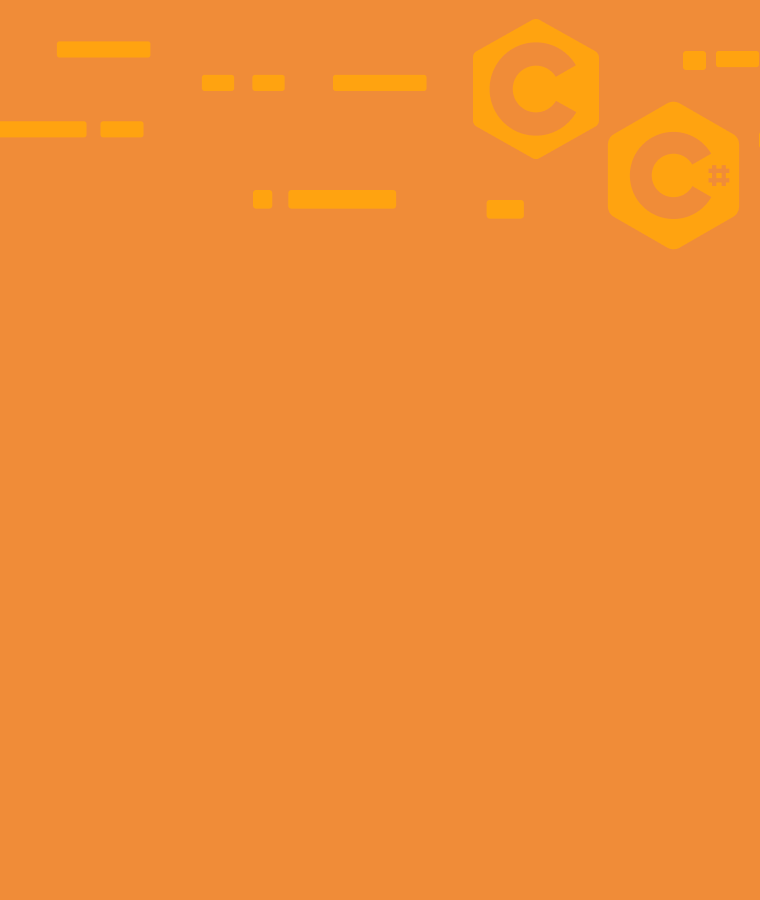
C++ or C#: What Are and Their Pros and Cons
Beginner-level programmers have so many options for choosing their first programming language. For instance, C, C++, C#, and Java are some programming languages developers start their programming careers with.
According to a developer survey in 2022 conducted by StackOverflow, C++ and C# are popular among beginner programmers to start their programming learning.
In this article, we’ll explore what C++ and C# are, the reasons to learn them, and their pros & cons. We’ll also compare the two languages for you to choose your first programming language.
What Is C++ Programming Language?
C++ is a general-purpose programming language with rich library support. It was created as an enhancement of the C language by Bjarne Stroustrup in 1979 at Bell Labs in Murray Hills, New Jersey.
As one of the predominant languages, it runs on platforms like Windows, Linux, Unix, Mac, etc. It gives users a higher degree of control over memory and system resources.
Three data types are used in C++, namely, primitive, derived, and user-defined. Integer (int), character (char), boolean (bool), and floating point (float) are some of the built-in data types. Examples of derived data types include function, array, and pointer.
Users can also define their data types, such as class and structure. Sololearn offers a beginner-level course on C++, ‘Introduction to C++,’ to build your programming skills. This general-purpose programming language was designed to make large systems and resource-constrained software.
Pros and Cons of C++
We’ve listed the advantages and disadvantages of using C++ below:
Pros:
- C++ offers portability, meaning it is platform-independent.
- It supports different libraries with functions to write code quickly.
- It provides complete control over memory management.
- C++ provides speed over other general-purpose programming languages.
- It offers object-oriented support, which allows for making programs that are maintainable and can be extended.
- C++ can be used for system programming and to build large-scale applications.
- C++ provides memory access and support points that allow users to manipulate storage addresses directly.
Cons:
- C++ is harder to understand syntactically compared to more advanced programming languages.
- C++ does not offer garbage collection support, so the programmers must manually manage memory. And if not handled efficiently, it can lead to the storage of redundant data, increasing memory usage.
- C++ does not contain built-in-threads support. This puts it at a disadvantage when compared to other languages like Java. It makes your process a lot more complicated.
Why Should You Learn C++?
Here are the major reasons why you should consider learning C++:
- C++ offers feasibility and abundant library support helps to write code fast and efficiently.
- C++ is popular and has a large community backing it. Lots of online resources are available related to this language
- C++ is a compiled language as it has a faster execution speed.
- Learning C++ is a stepping stone toward learning more advanced languages.
- Learning to code with C++ will allow the programmer to learn the computer science fundamentals as it effectively implements object-oriented programming concepts.
- It has extensive applications such as operating systems, GUI, game development, web browser, embedded systems, cloud systems, compilers, and database management software.
What Is C# Programming Language?
C# (pronounced as ‘see sharp’) is a powerful, general-purpose, and modern programming language. It was developed to tackle the increasing demand for web applications. Microsoft’s Anders Hejlsberg developed C# in the year 2000.
C# enables developers to build different software applications running in the Windows .NET framework. It is used to develop hosted and embedded systems. You can find the use of C# in web & desktop applications and games. The closeness of C# to C family languages is another reason for its popularity and ease of learning.
Three categories of C# data types are value, reference, and pointer data types. Integral, floating point, decimal, character, and boolean are the value data types that directly store variables in memory. And reference data types include objects and strings.
You can learn more about C# data types in this beginner-level course, ‘Introduction to C#’ by Sololearn.
Pros and Cons of C#
The following is a list of advantages and disadvantages associated with C#.
Pros:
- It has a built-in garbage collector and is type-safe.
- As an object-oriented programming language, C# produces easier-to-test and read applications.
- It enables response to any occurring issues and provides a leaner approach to writing code.
- Being a high-level language, C# is easier to understand than a low-level language.
- With the .NET framework, C# developers can rely on the powerful .NET Core framework designed to build web services and applications.
Cons:
- C# requires code compilation every time you make any changes. Which can lead to errors and bugs.
- Using .NET libraries can add another layer of complexity to learning C#.
- Since C# is part of the .NET framework, it needs the Windows platform for execution.
Why Should You Learn C#?
Below are significant reasons why programmers learn C#.
- C# is more beginner-friendly, type-safe, and offers portability.
- It provides garbage collection and automatic memory management.
- It is a pure object-oriented programming language. C# is cross-platform and quite flexible, allowing you to create various applications like console, AI, desktop applications, games, and more.
- C# has a large community to find support and collaboration.
Differences Between C# and C++ Programming Languages
According to the TIOBE Index, C++ and C# are among the top 5 programming languages. Some key differences between C# and C++ are:
- C++ is a middle-level language complementing C with object-oriented features. On the other hand, C# is a high-level language.
- Development of standalone applications is impossible with C# in contrast to C++.
- C++ and C# differ in how they compile programs. C++ compiles to machine binary code, and C# compiles to bytecode, which is compiled into machine binary code by .NET.
- Code execution also differs in these two languages. The executables of C++ are smaller than that of C#. C++ programs need libraries necessary to run on a specific platform. Whereas C# runs with a .NET framework, meaning an unnecessary framework is included in your compiled binary.
- C++ applications directly interact with the hardware; therefore, they are more performant than C#. As C# runs on the .NET framework, introducing a layer between the code and hardware.
- C++ compiles any code if the syntax is correct, without warning about errors before compilation. But C# provides compilation alerts about code that can cause issues. Thus it smoothens the coding.
- You can use pointers in C++ anywhere. While in C#, code that uses pointers is marked as ‘unsafe’
- Memory usage by both languages is different. In C++, programmers need to manage memory usage. While C# automatically manages by removing objects no longer needed in memory.
Conclusion – Begin Your Programming Journey With Sololearn
This article provides an overview of the features of C++ and C#, the two most popular programming languages. You can start building your C++ or C# programming skills with Sololearn. It offers extensive resources, from courses to a coding playground and a discussion forum. Whether you are a beginner, an intermediate, or an expert in C++ or C#, you can find a course that complements your learning journey.
In addition to courses, you can also use C++ and C# online compilers while building your coding fundamentals. Start learning to code with Sololearn to excel in your coding career.


